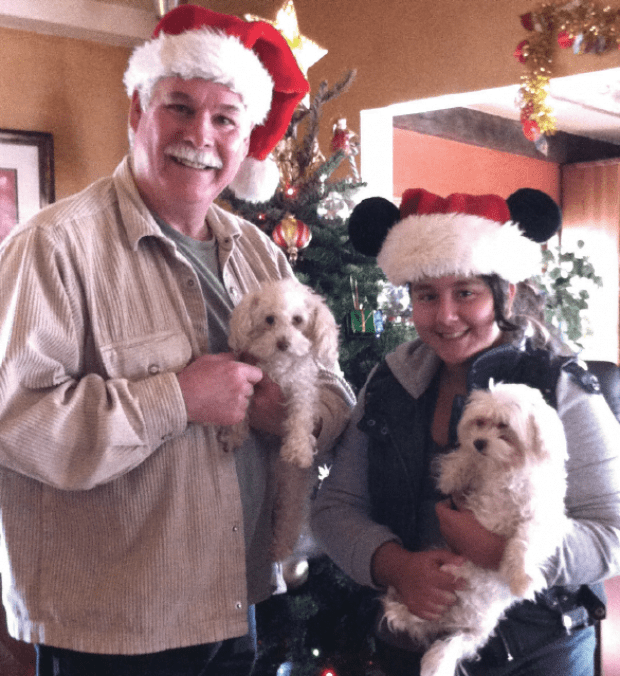
Malibu is now home to a Nobel prize winner. Not the scientific Nobel award, but a coveted Nobel awarded to valued educators. Malibu resident Steve Held recently won the Claes Nobel Educator of Distinction award from a special program of the National Society of High School Scholars. Claes Nobel is the oldest sibling of the family that awards the Nobel Prize.
Held was nominated by one of his students for the award, which, to Held, is the greatest validation he could receive.
“I have a modality of teaching that helps kids to discover how they learn best, then explore what they want to learn and why they want to learn,” Held said. “When that paradigm is in place, a kid’s antenna goes up. They realize that they are responsible for what they learn and, therefore, are responsible for their own lives.”
The NSHSS honors American teachers who help their students achieve educational excellence. Held has been doing that with Malibu students for more than 20 years. He came to education in a roundabout way.
He had graduated from California State University at Fullerton with a bachelor’s degree in performing arts and music. But a girlfriend who was teaching at Franklin Elementary in Santa Monica asked him to bring his drums to class one day for a percussion lesson.
“At the assembly, all these kids were sitting around, mesmerized,” Held said. “I had an epiphany. I was enjoying teaching more than the drumming. You can’t deny reality when it hits you like that. So I went back to school to get my teaching credentials.”
Early on, Held spent time teaching grades K-12 in South Central Los Angeles. By the time he moved to Malibu in 1990, he decided to quit teaching for the Los Angeles Unified School District and founded his own school, Steve’s School Services. He wanted to focus on homeschooling and what he calls “educational therapy.”
It allowed Held to teach any and all subjects while working one-on-one with a wide spectrum of students—from extremely brilliant to those with learning disabilities, physical illness or motivational issues.
“I have a unique ability to connect with these students on their level, and then prescribe and implement a curriculum to meet their needs,” Held said.
To Held, the problems with public education are systemic and entrenched in a technique that focuses on one limited form of learning to the exclusion of anything else.
“How are kids taught in school today?” he asked. “Purely through auditory learning. Lecturing and reading. But studies have shown that children, particularly boys, learn more from actual physical activity involved with the subject, or kinesthetic learning. They also learn more by actually teaching themselves. When you bend to their interests, it becomes magical.”
So a student might develop a greater understanding of geometry by building a geodesic dome for a playhouse rather than reading about one in a book. So, Held employs a number of different learning modalities in his teaching methods—audio, visual and kinesthetic. He believes that compulsory education should be eliminated.
“We need ditch diggers, too,” Held said. “But we’re trying to force a lot of square pegs into round holes by insisting every kid learn algebra to the exclusion of music and sports and dance and drama. Most children will never, ever use algebra in their lives. We’re raising kids to be college professors and it’s the wrong paradigm.”
Held also pointed out that the number of things students are required to learn today is increasing.
“Buckminster Fuller said that knowledge is a doubling curve and the more we know, the faster we know more,” Held said. “Up to about 1900, knowledge doubled approximately every 100 years. Today, all there is to know is doubled every one and a half years. With nanotechnology taking over science, IBM predicts that the totality of information will double every 11 hours. So we are teaching a static curriculum in a changing world.”
Held believes that we shouldn’t teach a prescribed curriculum, but teach children how to learn—how to gather information and apply it to their lives. More important than math or science, he maintains, is the challenge of nurturing children’s curiosity and creativity.
Patrick Tran, 16, nominated Held for the award and was awarded a National Merit Scholarship of his own this year. Tran first started working with Held after a bone marrow transplant kept him studying at home.
“I never felt that I connected with any other teachers,” Tran said. “I sort of knew what I wanted to do, but was never able to express myself. Steve helped me articulate that but he also showed me how I could do it. He didn’t just teach. He told me to look to myself for the answers.”
Tran plans to become a general surgeon and hopes to attend Johns Hopkins University in his quest.
“Patrick will do it,” Held said. “It’s all there inside of him.”
The NSHSS will present Held with his Award of Distinction next October in Los Angeles.
